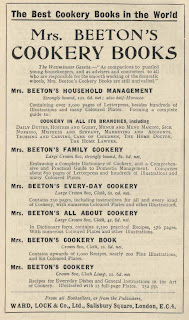 |
| Tenniel's witty interpretation of a Mock Turtle |
The Victorians loved their turtle soup. They loved it so much they ran out of turtles.
If the Victorians were good at anything, however, it was tinkering, and getting around troublesome problems like things running out. Things hadn’t run out before, because the machinery for eradicating them hadn’t been developed, though a few species Victorians found delicious were rapidly discovering that the rifle was an instrument well-suited to reducing their ability to find a mate. The Dodo, the Passenger Pigeon, the Buffalo — not big fans of the rifle. Whales, which seemingly filled an ocean so large as to supply them into infinity, found themselves speared unendingly on the points of harpoons. Giant sea turtles were not nearly as quick as those sent to catch them.
Tinned food was a blessing for working Moms, and Mock Turtle Soup was one of their favorites. It’s almost identical to Calf’s Head Soup. Actually, it is Calf’s Head Soup, but that doesn’t sound nearly as appetizing. The Victorians weren’t afraid to call a thing according to its composition or destiny, and knew they weren’t fooling anyone if a little bit of fakery was involved, so they had a lot of mock this and mock that’s.
Kentucky Receipt Book, Mary Harris Frazer, 1903
Also from this book: This'll Make You Breathe Easier, To Remove Freckles, Toast Water, Backbone, Egg Wash









